Creating a Special Role on vCenter and Assigning the Role to a New User
To achieve this, follow the steps below:
- Login to a system on which the vSphere Client is installed.
-
Launch the client. When Figure 1 appears, login to vCenter using administrator credentials.

-
Figure 2 then appears.
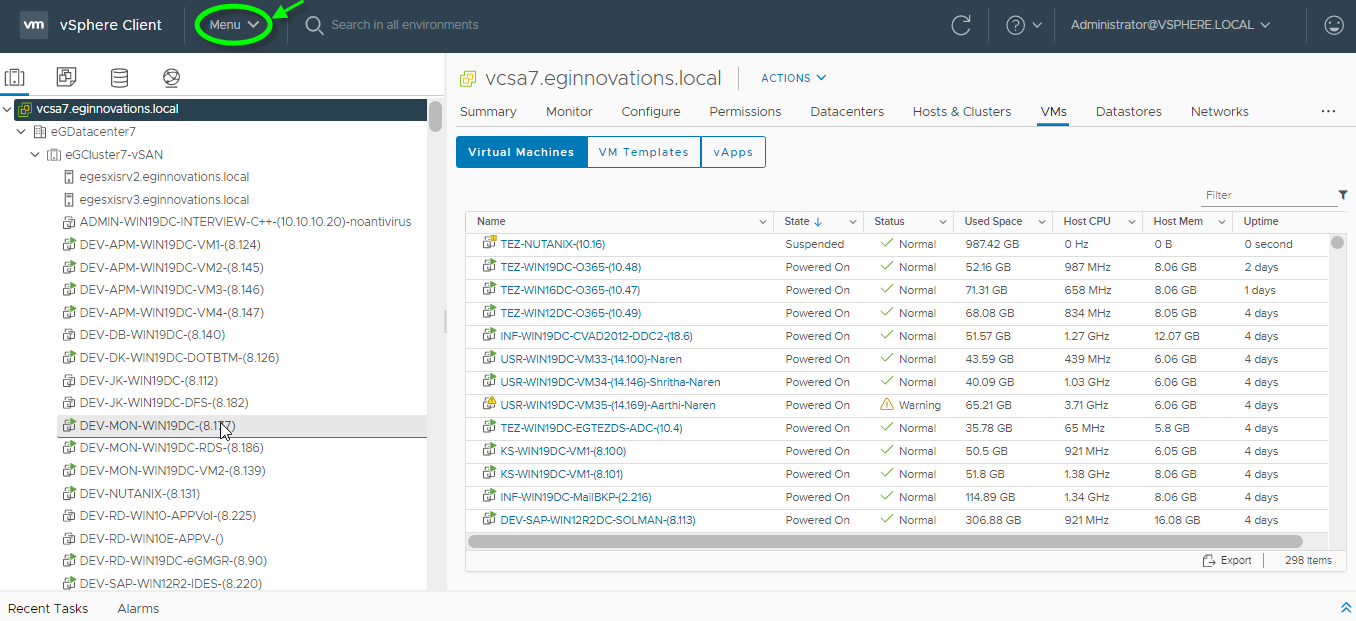
-
Click on the Menu option indicated by Figure 2. A menu depicted by Figure 3 will then drop down. From the menu, select the Administration option.
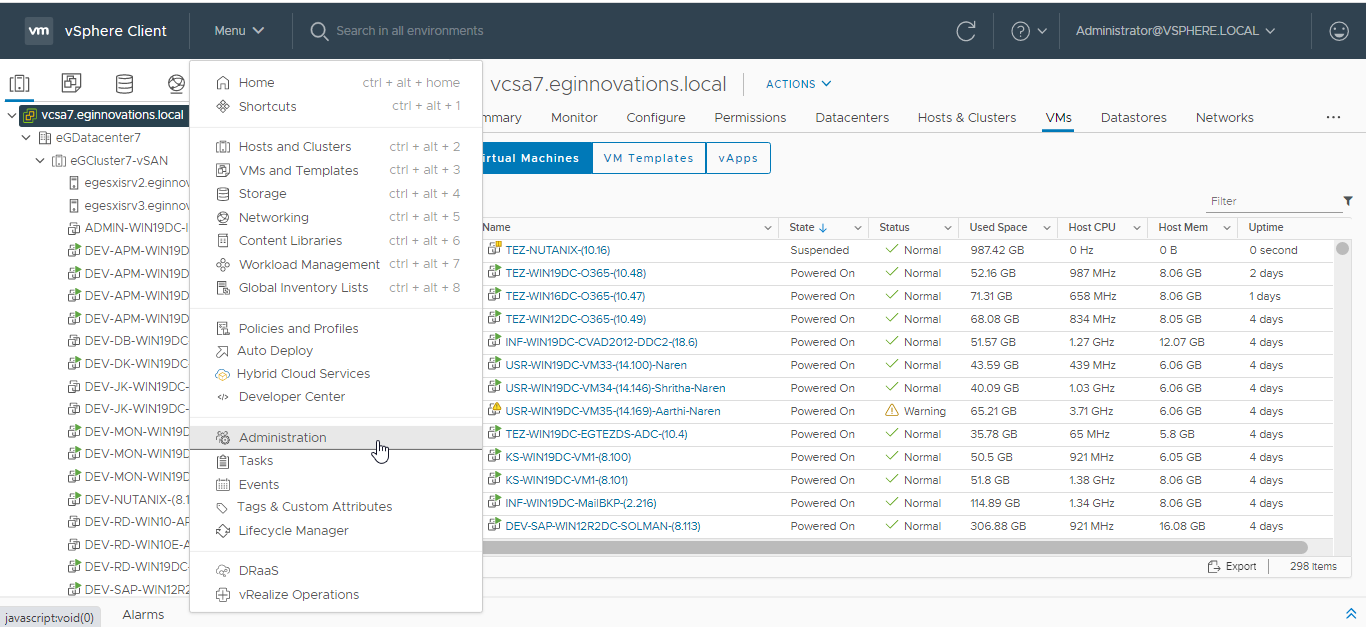
-
Figure 4 will then appear. From the options listed in the left panel of Figure 4, select Users and Groups by clicking on it.
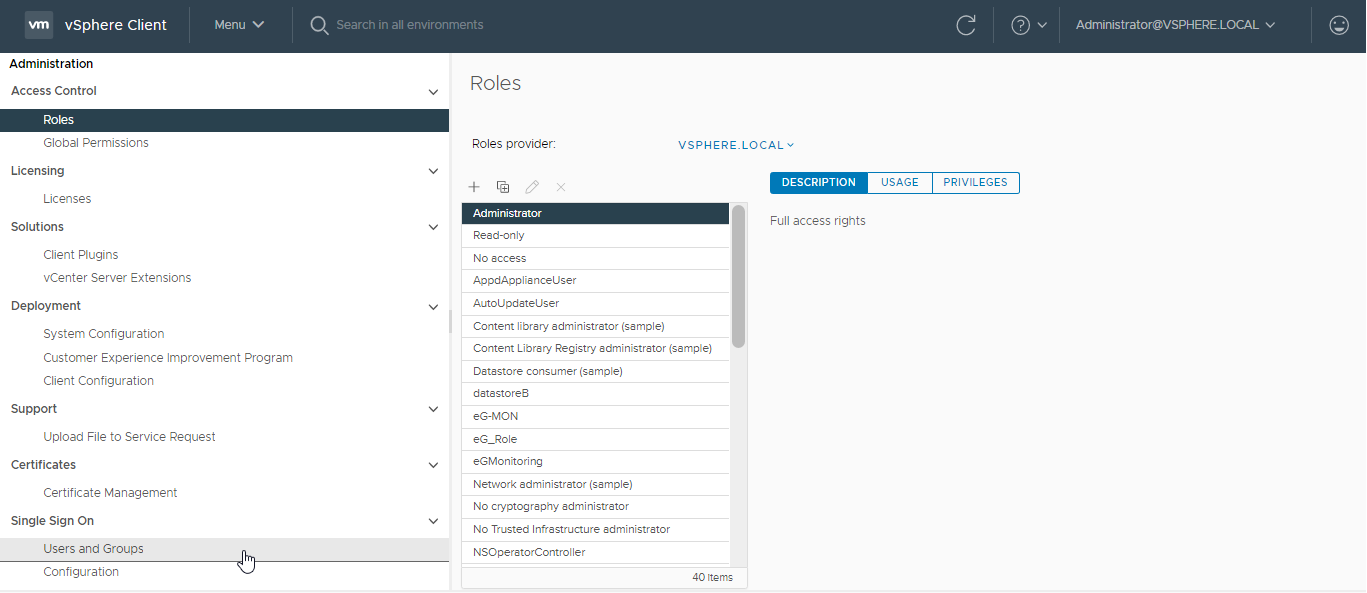
-
The right panel will then change to display a Users and Groups section (see Figure 5). Here, select the Domain in which you want to add a new user, and then click on ADD to begin.
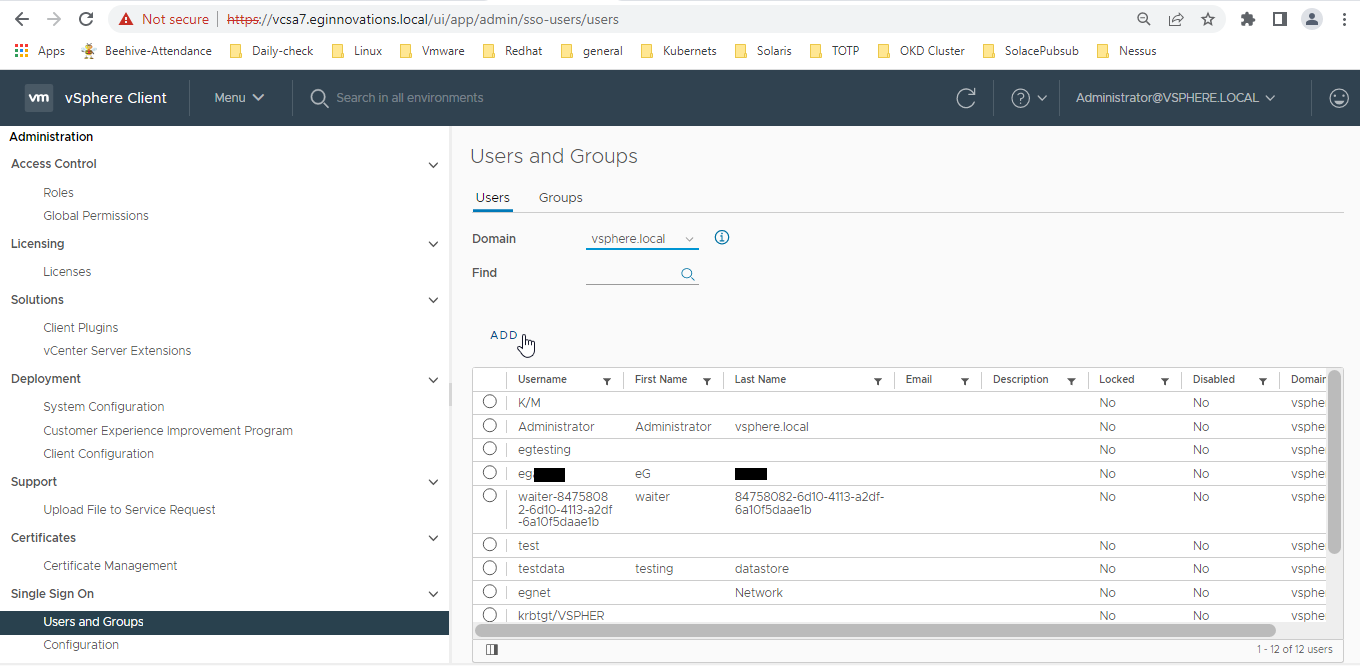
-
Figure 6 will then appear. Provide the Username and Password of the new user in Figure 6, and confirm the password by retyping it in the Confirm Password text box. Then, click on the ADD button in Figure 6 to save the details of the new user.
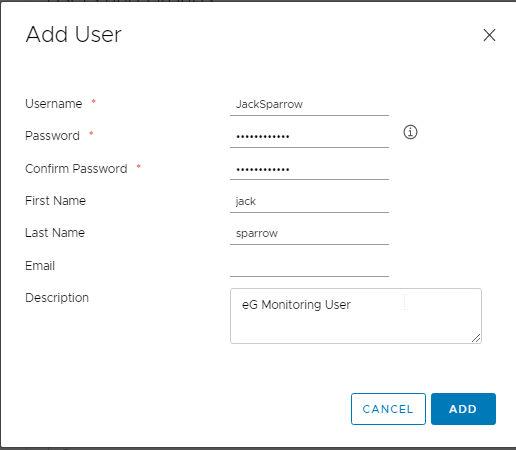
-
Figure 7 will then appear. From the left panel of Figure 7, select the Roles option.
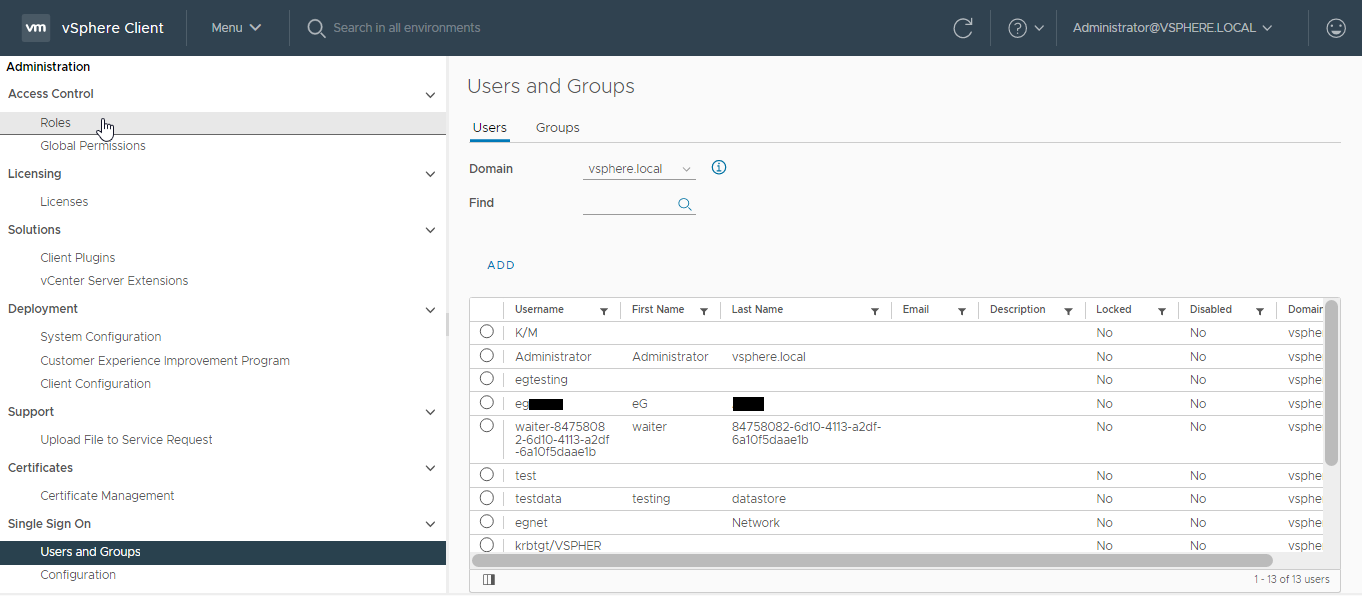
-
The right panel will then change to display a Roles section (see Figure 8). Click on the '+' button in Figure 8 to create a new role.
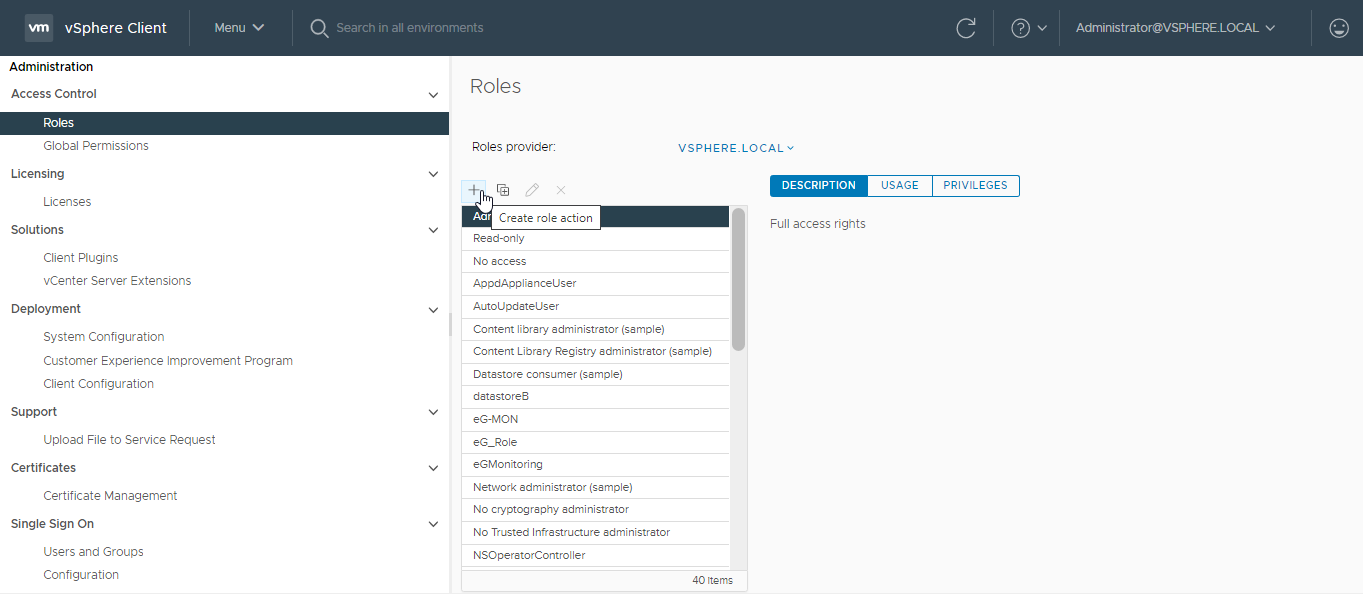
-
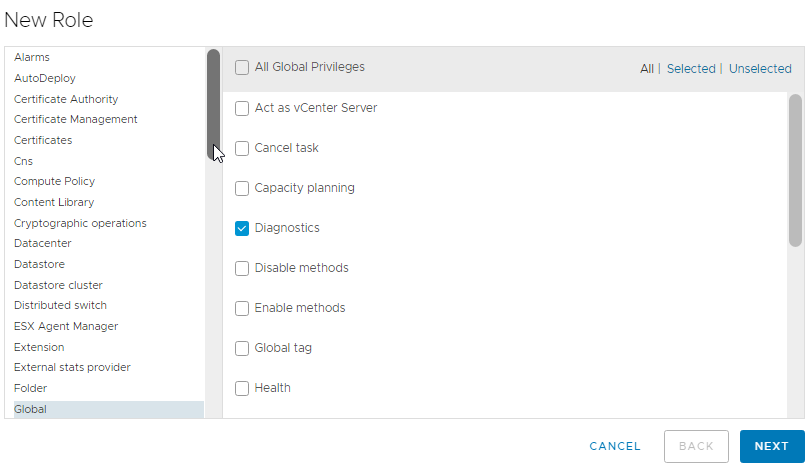
Figure 9 : Selecting the Diagnostics and Licensing permissions under the Global category of privileges
-
Next, select the Host category from the left panel, and click on the Change settings check box in the right panel (see Figure 10).
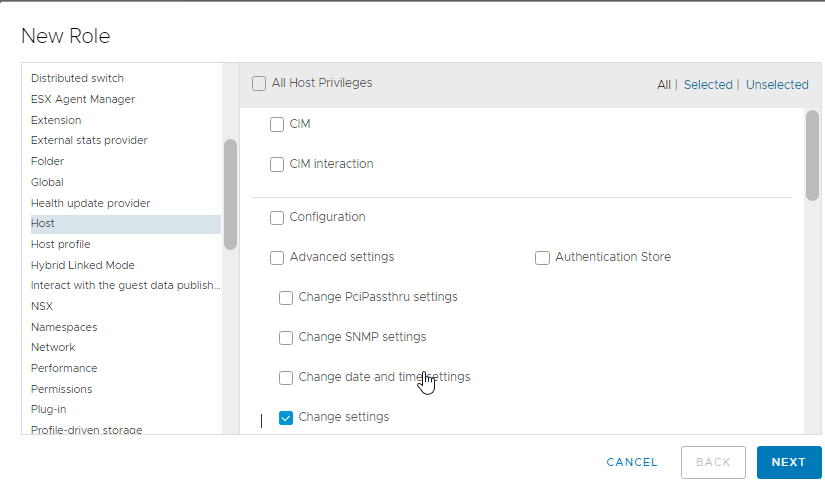
Figure 10 : Selecting the Change settings permission from the Host category
-
Next, pick the Sessions category from the left panel, and choose the View and stop sessions privilege from the right panel (see Figure 11).
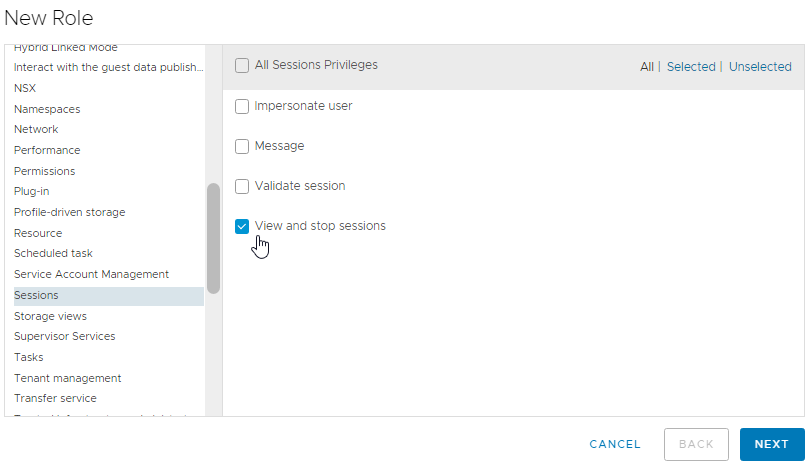
Figure 11 : Selecting the View and stop sessions privilege under the Sessions category
-
Finally, click the Next button in Figure 11 to proceed. Figure 12 will then appear, where you will have to specify the Role name. Finally, click the Finish button in Figure 12, so that a new role with the specified name is created.
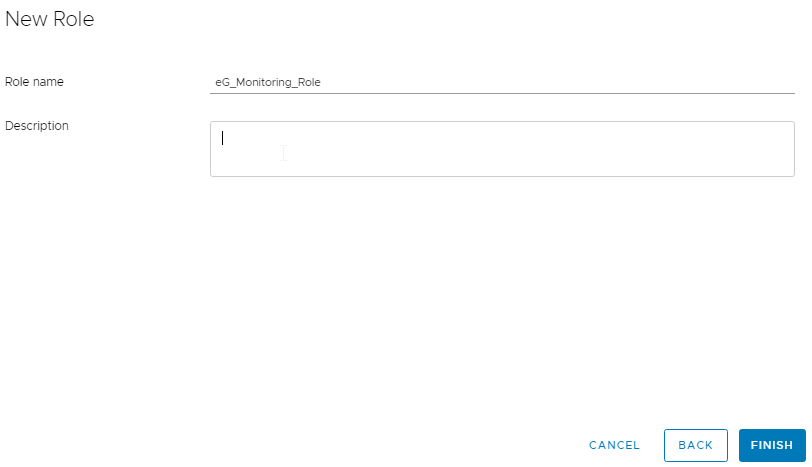
-
When Figure 13 appears, click on the Global Permissions option in the left panel of Figure 13.
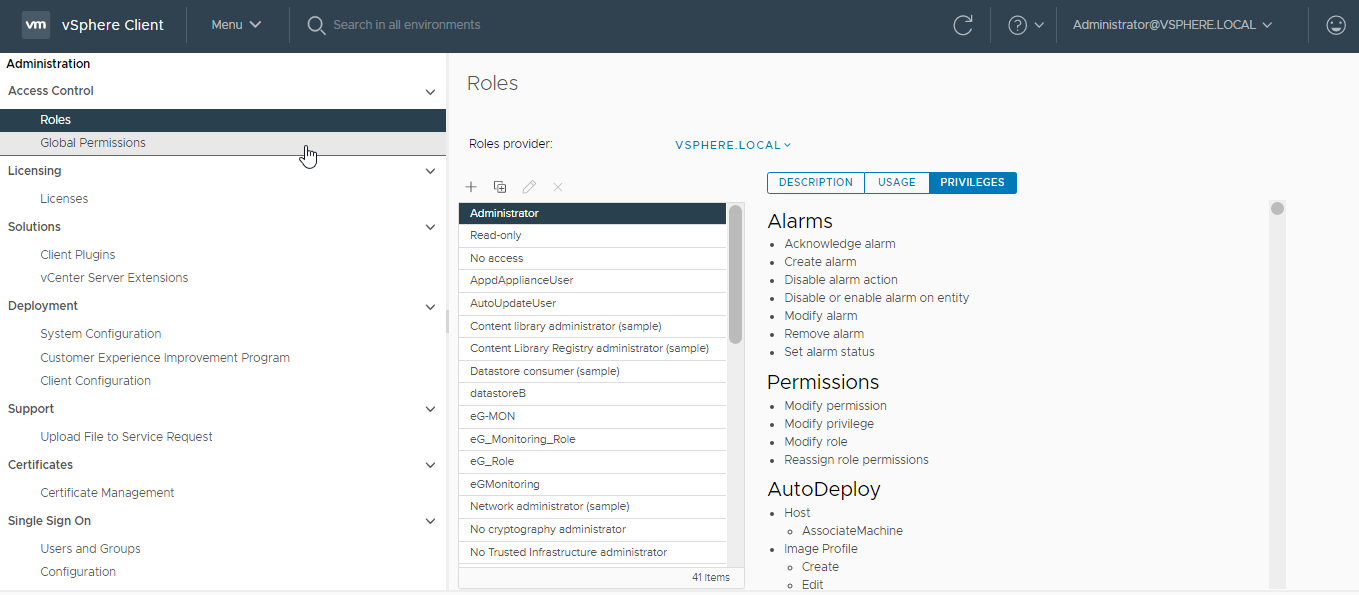
-
In the Global Permissions section that opens in the right panel, click on the '+' button (see Figure 14).
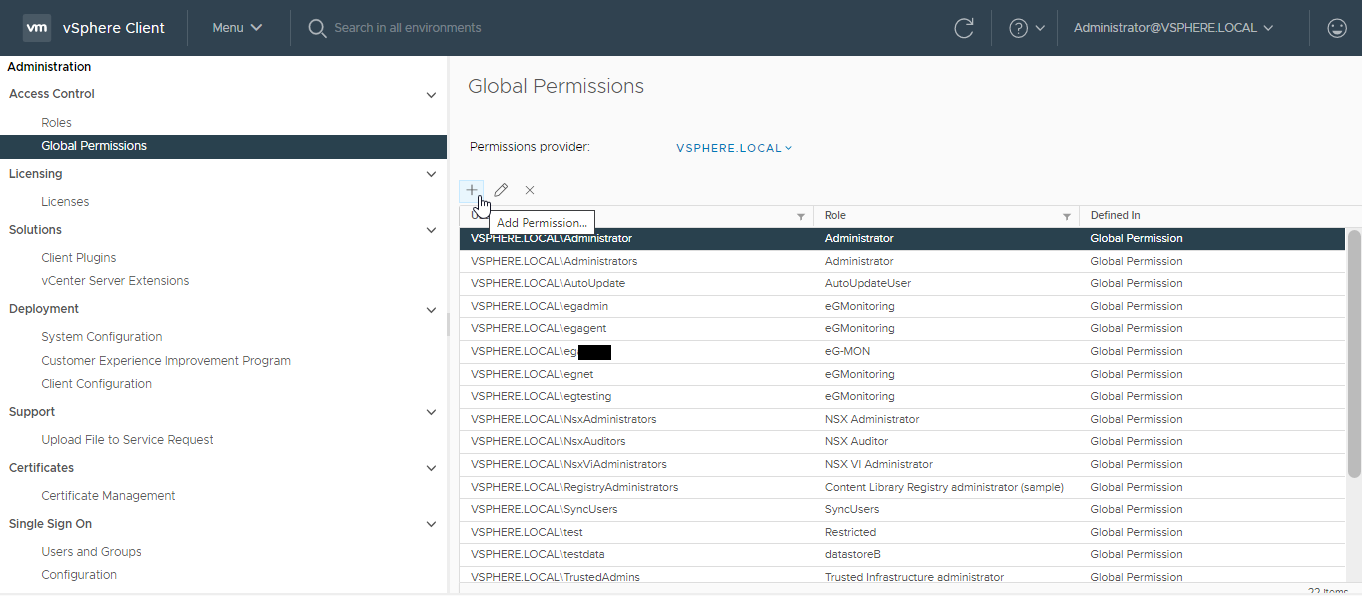
Figure 14 : Clicking on the '+' button in the Global Permissions page
-
From the Domain drop-down in Figure 15 that appears next, select the domain in which you created a new user previously. Then, in the User/Group text box, specify the name of the user you created. Make sure you provide the same Username you specified at the time of user creation (see Figure 6). Alternatively, use the 'magnifying glass' icon against User/Group to browse for the user name. Next, from the Role drop-down, pick the new role you created. This assigns the chosen Role and all permissions included in that role to the specified User/Group.
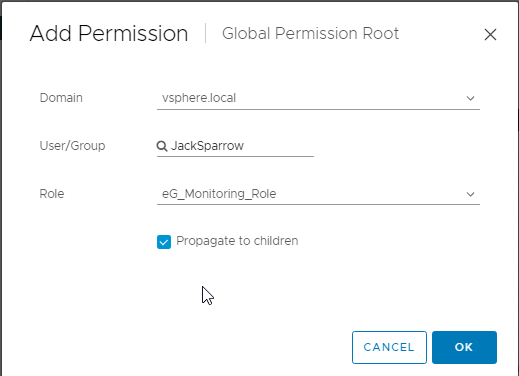
-
Finally, click the OK button in Figure 15.
You can now proceed to configure the ESX USER and ESX PASSWORD parameters of all eG tests with the Username and Password (respectively) of the new user you created (see Figure 6).